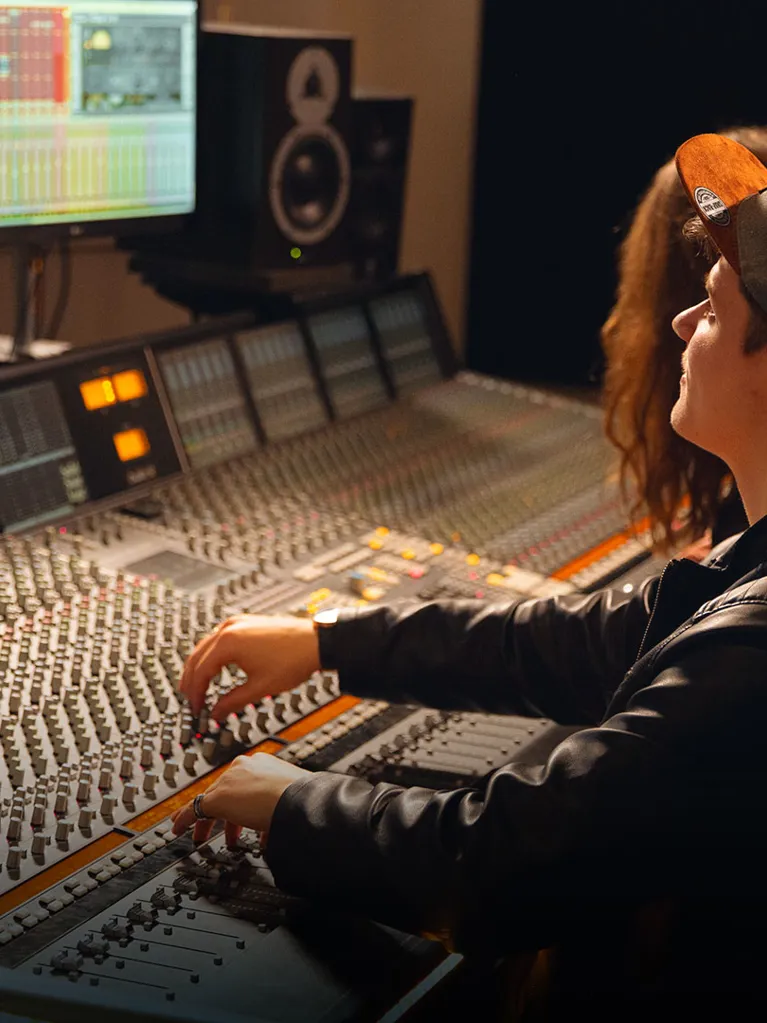Gain the core skills you need to pursue a career in the audio industry, have the chance to collaborate with your peers, build your portfolio and practical experience, and be mentored by well-connected industry professionals in Australia's leading, award-winning audio engineering course.
During the Bachelor Degree, explore acoustic design, microphone techniques, audio electronics and music production and how this can be applied to mixed media such as television, film, digital design and games. Collaborating with students on real projects in these same areas will give you a broader context in which to apply your skills and expand your professional network. You’ll also get the opportunity to specialise in an area most aligned to your skills and interests by taking electives including Live Events, Studio Production, Sound for Screen and Electronic Music Production.
Explore post-production, surround sound and large-scale live sound systems, develop an area of specialisation and create a tailored showreel designed to kick-start your career in the industry.
Why Study Audio at JMC?
Technology & Facilities
We take audio seriously at JMC, with studios full of the best tech in the trade including high-end equipment and recording studios, fitted with 5.1 surround sound and all the latest gear, including:
Consoles: SSL Duality 48 Channel, Avid C24 control surface, Pro Tools HD with Avid HDX conversion
Mics: Neumann U87, FET 47, U89, Royer 121, AKG C414 and many more
Plugins: Full Universal Audio Plugin Suite, Waves Mercury Bundle Outboard: Avalon 2022, Universal Audio 2x610, Empirical Labs Distressors, Manley Vari Mu
Duration
In just 2 years you can graduate with a Bachelor degree thanks to our accelerated full-time course. Part-time study is also available to domestic students. International students may choose to complete the course in 3 years [CRICOS 056930F] rather than the accelerated 2 year option.
Students who have successfully completed 4 trimesters of the Bachelor programme may successfully graduate with an Associate Degree qualification.
Our internship subject is designed to connect students with industry partners to get real-world experience and put you in the best position to land employment. We have partnered with Lighting, Sound, AV, Recording Studios, Film and TV companies such as The Brain Studios, ARN, KISS FM and many others.
Course Structure
The industry standard Bachelor of Creative Technology (Audio Engineering & Sound Production) is taught over 2 years (6 trimesters).

















